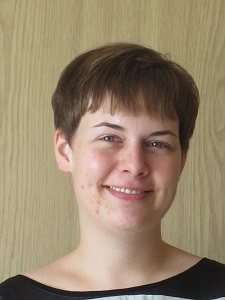Tabea Cornel
PhD in History and Sociology of Science ’19
Assistant Professor, New College of Florida
Graduate Certificate in Social, Cognitive and Affective Neuroscience, University of Pennsylvania ‘15

“The SCAN program has provided me with neuroscientific know-how, know-that, and know-who. I gained deep insight into how neuroscientific evidence is acquired, evaluated, and shared (know-how). I also attained broad factual knowledge on brain anatomy and physiology as well as foundational neuroscientific concepts and theories (know-that). Finally, I met neuroscientists from different institutions, subfields, and career stages (know-who). Being personally acquainted with neuroscientists allowed me to see the motivations, experiences, and thought processes that feed into neuroscientific research, but which are oftentimes rendered invisible in neuroscientific publications.
Becoming knowledgeable in neuroscience on these three levels allowed me to be a better-informed historian of neuroscience. My insight into contemporary neuroscience allows me to get a sense of what neuroscientists value today and how they look at the evolution of their own field. This knowledge helps me read between the lines of neuroscientific publications and gauge why researchers chose certain methods or formulations and what might have been at stake in making these decisions. I have also become a more courageous historian of neuroscience in the sense that I do not shy away from the nitty-gritty details of, for example, brain anatomy and statistical analyses.
My ability to engage with these technical aspects has made me a more versatile teacher. For instance, the neuroscience program at my current institution cross-lists my courses, and the director of the local data science program wants me to co-teach a course on refugee mental health in the fall. Teaching across disciplinary boundaries makes an impact with students whom I could never reach if I only taught traditional courses in history of science.
Last but not least, SCAN laid the foundations for my new research project on the use of statistics and quantitative methods in neuroscience. I know of no other historical work that assesses neuroscientific methods and epistemologies on such an elementary level, and I am only equipped to do so because of the content knowledge, conceptual understanding, and personal relationships fostered within the SCAN program.”